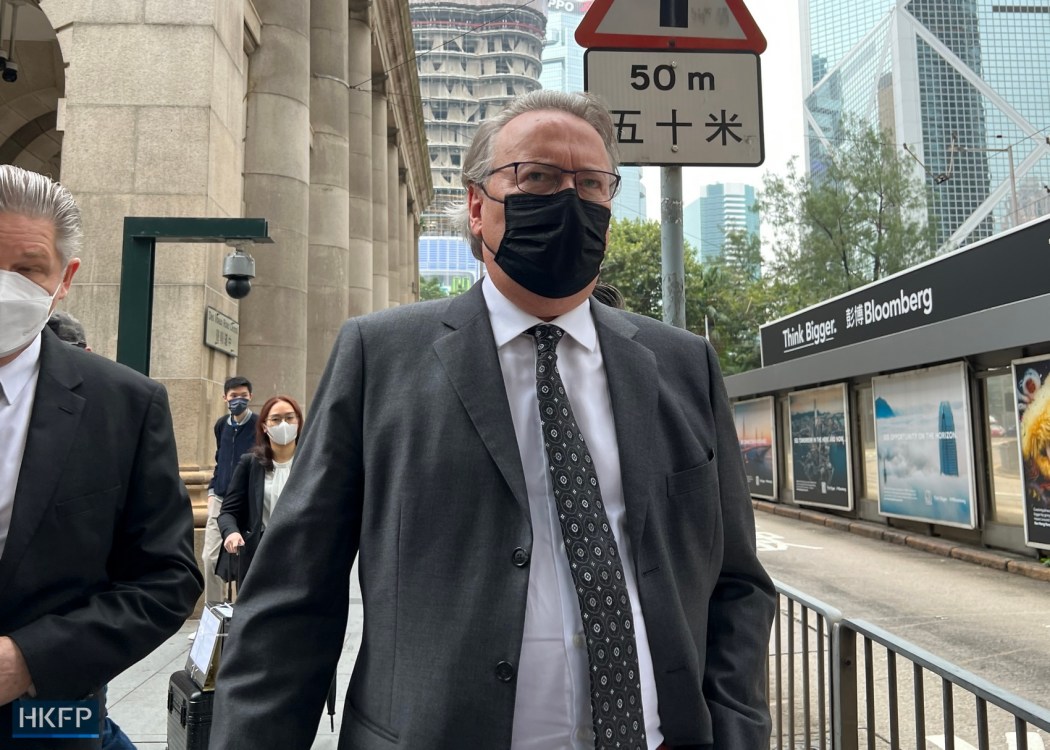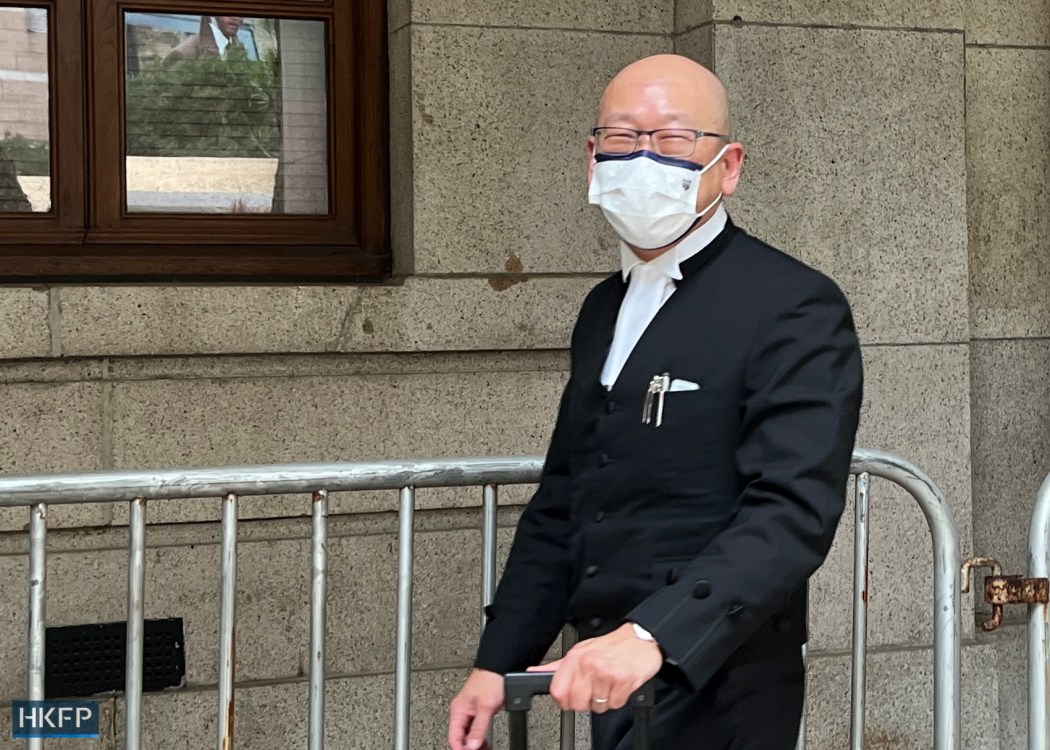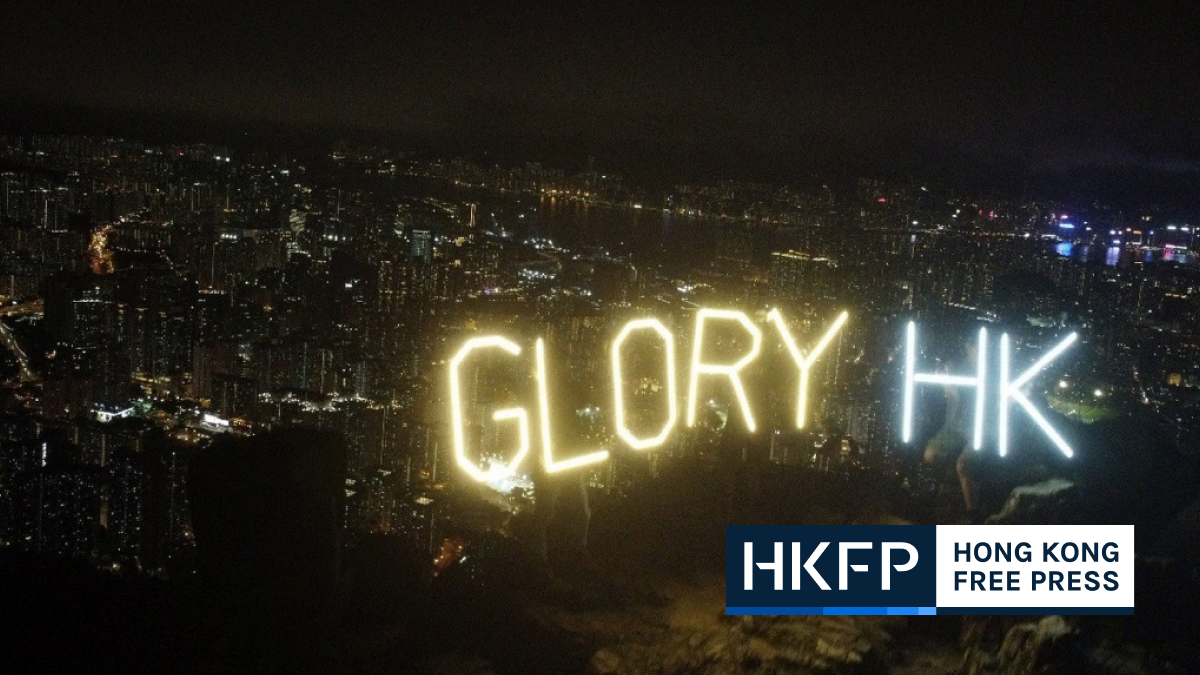Hong Kong’s top court has adjourned its decision on whether to allow the Department of Justice to appeal against an earlier ruling that let media tycoon Jimmy Lai hire a UK lawyer for his national security trial until Monday. Lai’s trial is set to begin next Thursday.
A panel of three judges – Chief Justice Andrew Cheung and Permanent Judges Roberto Ribeiro and Joseph Fok – heard the DoJ’s application for leave to appeal against the admission of King’s Counsel Timothy Owen at the Court of Final Appeal on Friday.

The media tycoon, who founded pro-democracy tabloid Apple Daily, stands accused of three national security charges: two counts of conspiracy to collude with foreign forces, and one count of collusion with foreign forces.
The 74-year-old is also facing one charge under the colonial-era sedition law: conspiracy to print, publish, sell, offer for sale, distribute, display and/or reproduce seditious publications.
The hearing on Friday dealt with the justice department’s fourth attempt to block Owen’s admission. The Court of Appeal previously ruled twice against the DoJ, before the matter was brought to the city’s highest court.
King’s Counsels are the British equivalent of senior counsels in Hong Kong and require permission to be allowed to represent clients in the city’s courts.
Blanket ban on overseas counsel
Ex-justice secretary, Senior Counsel Rimsky Yuen, argued on behalf of the department on Friday that the court should grant the application as the matter was of general public interest, and that it should reconsider the issue in light of a “new public interest” emerging because of the implementation of the security legislation.

Yuen confirmed to the top court that the DoJ was asking for a blanket ban on overseas counsel in national security cases, except for “exceptional circumstances,” and that the burden of proving such circumstances would fall on the applicant for admission.
Overseas counsels “would not be in a position” to contribute in security law trials, Yuen said, as “what we need is to have someone who can understand the national security of China.”
“What one country regards as important may be different from another country… what one country may see as most important could possibly be misunderstood by another,” said Yuen.
Lai’s case concerns a merger of the security law, which the senior counsel said was modelled on mainland Chinese laws, and the Basic Law, which is the city’s mini-constitution.
Owen would not be able to contribute to the case as he would not be able to the contribute on the former matter, and therefore he should not be allowed to represent Lai in the upcoming trial, the former secretary for justice argued.
Senior Counsel Robert Pang, who argued for the admission of Owen, said that inexperience in one area did not take away from what they might be able to contribute in other areas.

Pang also said that the justice secretary was focused on just one system in “One Country, Two Systems,” and was “throwing the other system out of the window.”
Public perception vs public interest
Three Court of Appeal judges, Susan Kwan, Carlye Chu, and Thomas Au, wrote in their first ruling against the DoJ that “public perception of fairness in the trial is of vital importance to the administration of justice.”
On Friday, Yuen argued that the panel of judges had erred in ruling so, and said that the court should not take into account public perception when deciding on the matter, as it “would not be in the best position to gauge public perception.”
On the other hand, Pang argued that public perception was an aspect of public interest, as it showed the confidence the public had in the administration of justice.
State secrets
The ex-justice secretary argued previously to the Court of Appeal that there was no meaningful or effective enforcement of overseas counsels’ obligations to confidentiality regarding state secrets or other confidential information once they leave Hong Kong.

On Friday, Riberio questioned Yuen’s argument, and said that Lai’s case would not involve any state secrets.
Pang argued that Lai’s case involved two conspiracies that took place in Hong Kong, involving local defendants, and that according to the department’s latest updates, the collusion charge would be left on court file, and that no state secrets would be involved in the case.
The senior counsel also said that Yuen’s argument was “an insult” to Owen, as the UK barrister would still be bound by confidentiality, and any provisions the UK has for counsellors practising overseas.
Potential outcomes
After Cheung announced that the court would adjourn its decision to Monday, the chief justice asked how the case should proceed should the top court grant the DoJ’s application.
Yuen said that the department would apply to adjourn the trial at the High Court if the application was granted, while Pang said that the trial should still go ahead as scheduled and that Owen should be allowed to represent Lai while the appeal was being handled.
Lai has been remanded in custody for close to two years since December 2020. The media tycoon had since been sentenced to prison over other protest-related charges.
Support HKFP | Policies & Ethics | Error/typo? | Contact Us | Newsletter | Transparency & Annual Report | Apps
Help safeguard press freedom & keep HKFP free for all readers by supporting our team
























